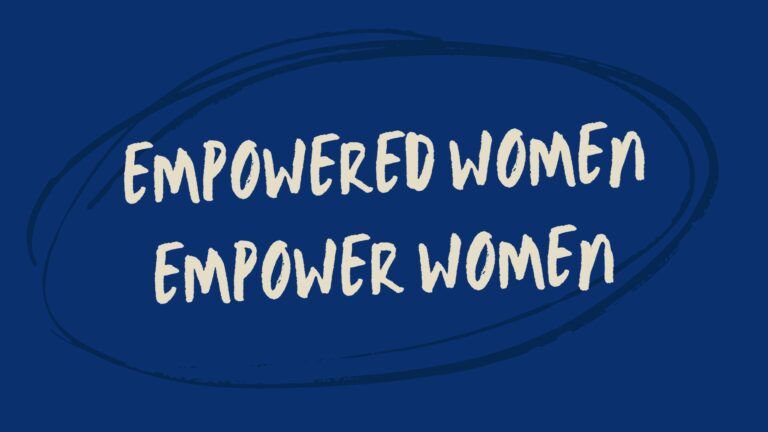Ever felt lost in a sea of internet acronyms? Confused about the latest social media trend? If so, you might need to brush up on your digital literacy!
Digital literacy is the ability to access, understand, create, and communicate information using digital technologies. It’s a combination of technical skills, like using software and searching the web, and critical thinking skills, like evaluating information and staying safe online.
Think of it like traditional literacy. Just as being able to read and write allows you to understand books and newspapers, digital literacy equips you to navigate the vast digital landscape.
Digital illiteracy and impact
Digital illiteracy refers to the lack of knowledge and skills in using digital tools and technologies, such as the internet and software applications. It can lead to difficulties in communication, accessing information, and using workplace technology effectively. Common characteristics include uncertainty about technology, lack of familiarity with computing fundamentals, and inability to use basic computer programs. In the workplace, digital illiteracy can manifest as difficulty in using email, basic software, company-specific tools, resistance to new technology, and misunderstanding of cybersecurity risks.
- Limited Access to Information: Digitally illiterate individuals may struggle to access and utilize the wealth of information available online. This can hinder their ability to stay informed, pursue education and career opportunities, and engage in civic participation.
- Economic Disadvantage: In today’s digital economy, many job opportunities require at least basic digital skills. Individuals who lack digital literacy may face barriers to employment or be limited to low-paying jobs with fewer opportunities for advancement.
- Social Isolation: With the increasing reliance on digital communication platforms for social interaction, digitally illiterate individuals may feel excluded or isolated from social networks. They may miss out on opportunities for networking, community engagement, and social support.
- Health Disparities: Digital illiteracy can exacerbate health disparities, as access to online health information and telemedicine services becomes increasingly important. Without the ability to navigate digital health resources, individuals may struggle to manage their health effectively or access appropriate medical care.
- Vulnerability to Scams and Fraud: Digitally illiterate individuals are more susceptible to falling victim to online scams, phishing attacks, and identity theft. Without the skills to recognize and avoid online threats, they may inadvertently disclose sensitive information or become targets of cybercrime.
- Limited Civic Engagement: In the digital age, civic engagement often occurs online through social media, online forums, and e-government platforms. Digitally illiterate individuals may be unable to fully participate in democratic processes, advocacy efforts, and community initiatives.
- Generational and Interpersonal Gaps: With younger generations growing up in a digitally connected world, the digital divide between age groups can exacerbate intergenerational and interpersonal communication barriers. Digitally illiterate individuals may struggle to connect with younger family members or colleagues who are more tech-savvy.
Why is digital literacy important?
In a world increasingly reliant on technology, digital literacy is no longer a luxury, it’s a necessity. It empowers you to:
- Finding and evaluating information
There is a lot of information that can be found online and all one has to do is use search engines effectively, identify reliable sources and evaluate websites for credibility so as to find the right information.
With so much information online, it’s crucial to be able to sort fact from fiction. There is a lot of misleading information on the internet because everyone can just wake up and write whatever they want on the internet, this is why there is a need to evaluate the information obtained from the internet before making any decision. Verifying the accuracy of claims and spotting misinformation is essential in today’s digital age.Digital literacy equips you with the skills to evaluate information and make informed decisions. Some tips on finding reliable information on the internet:
- Craft Effective Search Queries: Formulating precise questions and using search engine operators can lead you to the most relevant information.
- Source Credibility: Distinguishing credible websites credible websites (.edu, .gov) from biased or unreliable sources is essential. Look for author credentials and check for factual errors.
- Cross-referencing Information: Verifying information by comparing it with multiple credible sources strengthens your research .
- Communicating information
Technology allows us to connect with people around the world and stay informed about current events. You can create and share digital content, like presentations, documents, or even social media posts and communicate effectively online, using email, social media, and other platforms.
- Understanding Online Communication Tools: Mastering email etiquette, navigating online forums, and using social media platforms like LinkedIn, Facebook , and Twitter for productive communication is vital.
- Digital Collaboration: Working effectively with others online using tools like cloud storage and video conferencing is a valuable skill.
- Content Creation: Learning to create clear, concise, and engaging content for different online platforms can amplify your voice.
- Staying safe online – This can be achieved by understanding online privacy settings and safeguarding your personal information is crucial. You can find information on how to protect your privacy online in the links. Microsoft support and Google support. In addition, knowing how to identify, avoid and how to stop cyber bullying and promoting online respect is essential. Cyber bullying has been reported to have negative impacts on a lot of individuals and some have committed suicide. Knowledge on how to prevent and stop it is essential for mental wellbeing.
- Improved health access – Digital literacy is instrumental in improving health access by empowering individuals to access reliable health information online, utilize telemedicine and telehealth telehealth services, monitor and manage their health using digital tools, participate in online health communities, and engage with health education and awareness campaigns.
- Increased civic engagement – Digital literacy can increase civic engagement in several ways. Firstly, it enables individuals to access and share information about civic issues through online platforms such as social media, forums, and news websites. By teaching individuals how to critically evaluate information and participate in online discussions, digital literacy fosters informed civic discourse and activism. Additionally, digital literacy facilitates engagement with government services and processes, such as online voter registration, e-petitions, and contacting elected representatives. Furthermore, digital literacy empowers individuals to organize and mobilize for social and political causes using digital tools and platforms, thereby amplifying their voices and effecting positive change in their communities. Overall, digital literacy plays a vital role in promoting active citizenship and democratic participation in the digital age.
You can start getting digital literacy for free on Alison
Conclusion:
In today’s digital age, mastering digital literacy is not just a recommendation; it’s a necessity for navigating the complexities of the modern world. From accessing information and communicating effectively to safeguarding privacy and engaging in civic participation, digital literacy empowers individuals to thrive in an increasingly digitalized society. By developing digital literacy skills, you’ll unlock a world of possibilities and become a more informed and empowered participant in the digital age.
So why not start your digital literacy journey today? Don’t get left behind—embrace digital literacy and seize the opportunities of today’s interconnected world.
Credit: Hagirah





